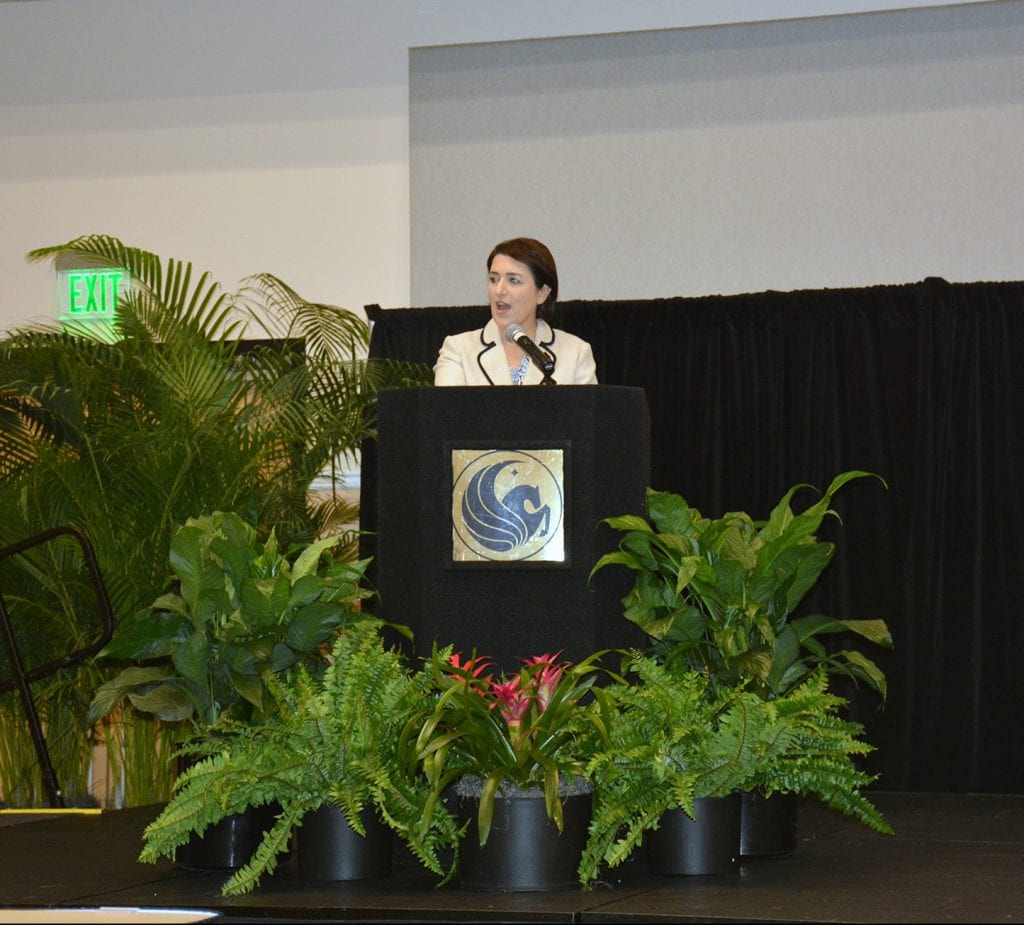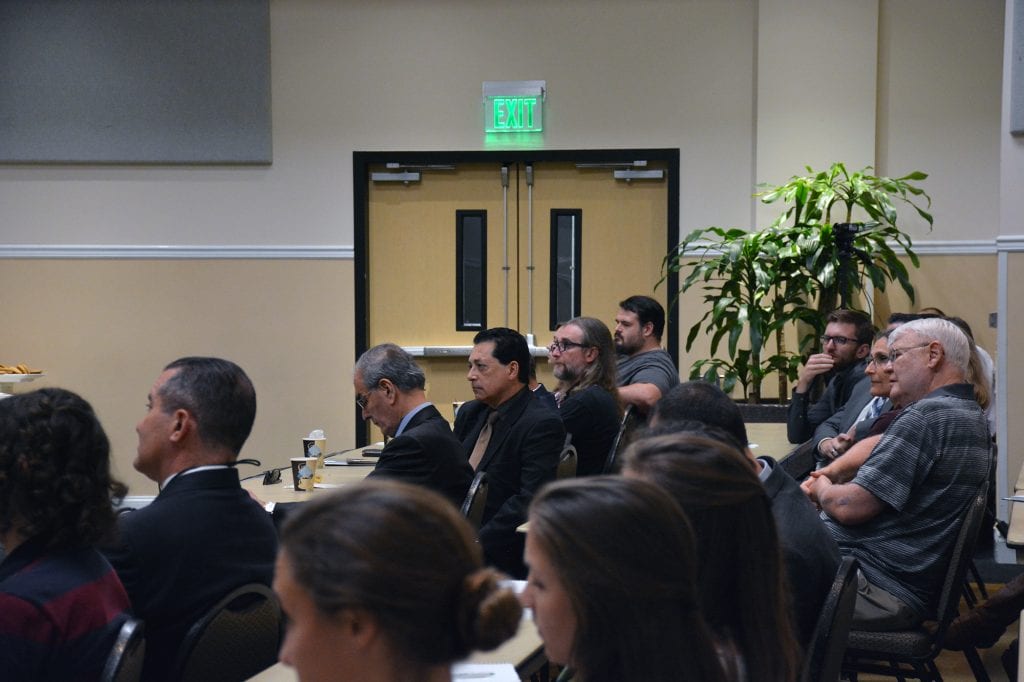Fighting Back Against ISIS: Forum Addresses Important Role of Kurds
By: Ada Tang, Lester N. Mandell Diplomacy Fellow
On Thursday, Nov. 10, 2016, the UCF Kurdish Political Studies Program (KPSP) hosted a Kurdish Political Issues Forum. Held in the Cape Florida Ballroom of the UCF Student Union, the forum featured distinguished visitors discussing Kurdish issues and how they relate to the United States.
John C. Bersia, co-chair of the KPSP Advisory Board and UCF’s Special Assistant to the President for Global Perspectives, welcomed the audience of students, faculty and community members to the forum. Dr. Güneş Murat Tezcür, the Jalal Talabani Chair of Kurdish Political Studies, moderated the forum and described the history of the program. The KPSP, hosted in the Department of Political Science, is the first academic program in the United States dedicated to the study of politics of Kurds and Kurdistan. The Jalal Talabani Endowed Chair was inaugurated on October 29, 2015, established by a donation led by Dr. Najmaldin Karim.

Dr. Najmaldin Karim described the role the Kurds play in fighting ISIS.
Karim – a neurosurgeon, Governor of Kirkuk, Republic of Iraq, and president of the Washington Kurdish Institute – delivered introductory remarks. Kirkuk is a disputed territory and a major target for ISIS. In a recent attack, ISIS forces were able to infiltrate the city. Security forces repelled the attack, but 87 lives were lost. Karim described how, by working together, Kurdish and Iraqi forces are making progress fighting against ISIS. He explained that Kurdish forces are the only effective force against ISIS in Syria. Despite this, the Kurds still face many challenges, which Karim listed. Since July, large numbers of Kurdish politicians and journalists were arrested in Turkey. More than half of the people executed in Iran are Kurds. According to Karim, though the United States and Europe turn to the Kurds for help fighting ISIS, they historically abandoned them. Karim expressed his hope that the new U.S. administration will take the issue of the Kurds seriously, and underscored his belief that the Kurdish people are friends of the Americans.
Following Karim’s remarks, Bayan Sami Abdul Rahman, the Kurdistan Regional Government Representative to the United States, delivered the keynote address. She commended UCF for creating the KPSP, indicating her hope that the program is just the beginning for Kurdish studies. The Representative described the challenges Kurdistan faces in the realms of security, humanitarian crises, economics and politics. She also discussed Kurdistan’s future and its relationship with the United States. “Every Kurd has tragedy in their family,” she said, “but we also have resilience, and the Kurdish spirit always rises up.”

Bayan Sami Abdul Rahman described Kurdistan’s challenges.
Ms. Abdul Rahman described ISIS as the most organized terrorist organization in history. Mosul is close to the Kurdish region, she said, and Mosul’s recent fall to ISIS control poses a major security threat to Kurdistan. The Kurdish Peshmerga forces defend the 600 mile border of the Kurdistan region. She explained that the Peshmerga have been fighting ISIS with few weapons, that they lack the equipment the Iraq army has, and the equipment the Peshmerga were supposed to receive has been held in Baghdad.
Abdul Rahman detailed the genocide ISIS conducted against the Yazidi Christian population, whom Kurdistan now hosts as refugees. While Kurdistan already faced a massive refugee challenge due to the civil war in Syria, she noted that the arrival of ISIS in 2014 caused those numbers to skyrocket. This, she said, is causing humanitarian and economic crises as the region struggles to provide for the population.
urdistan has a strong relationship with the United States, Abdul Rahman shared, and hopes to maintain this relationship in facing these issues. Kurds need the United States to be engaged diplomatically and militarily, Abdul Rahman said. She expressed a need for continued American leadership on the question of Iraq, as well as her hopes that the new U.S. administration would look beyond Mosul and avoid leaving a power vacuum. She also suggested that the United States can continue to help train the Peshmerga and coordinate in the fight against ISIS.
After finishing her address, Rahman took several questions from the audience. When asked whether the Kurdish military accepts volunteers from the U.S. and Europe, Rahman answered that there is no shortage of Kurdish fighters, even though they have not received salaries. She suggested that volunteers could help the displaced people in Kurdistan with food, water, education and psychiatric help. Another audience member asked if any American soldier has ever died at enemy hands on Kurdish-controlled soil. “No,” Rahman answered, “and the Kurds are very proud of this record.” Kurdish people, she emphasized, are friends to Americans, and Americans are most welcomed in Kurdistan. Finally, she reflected upon her experience as a woman serving in a leadership position.
This event was hosted by the UCF Kurdish Political Studies Program, and was supported by the UCF Global Perspectives Office, the UCF Department of Political Science and the Global Connections Foundation. More information about the Kurdish Political Studies Program can be found at its website, https://sciences.ucf.edu/politicalscience/kps/.
